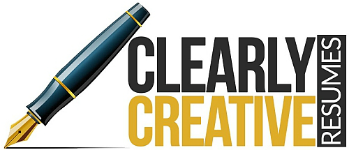Is it okay to lie on your resume?
We get asked this question very often when we do introductory calls: “Is it ever okay to lie on my resume?” No judgements here because this is a very valid question. We would rather you ask than assume.
Our answer is and always will be, “It’s never okay to lie on your resume.” Even if you have gaps on your resume or you feel as though there’s no way out, there’s always a way. Again, if you’ve thought of this or were unsure, you’re not alone. It’s been reported that about 70% of job applicants when asked, indicated that they have lied or would lie on their resume. 70%! Those are some serious stats and it definitely gives you something to think about.
Here’s a quick breakdown of why you should never lie on your resume and what can happen if you. Recruiters, hiring managers can spot a lie on a resume instantly. Fake information will automatically disqualify you from the recruitment process. You can kiss that callback goodbye because one lie leads to recruiters doubting the legitimacy and truth of your entire experience.
We always like to look at things objectively and although we are not trying to justify lying on a resume, we understand why the temptation may present itself. Here are some of the top reasons why you may be tempted to lie on your resume:
Desperation - you feel as though you are running out of options. You’ve been on the job hunt for weeks and months. You don’t see a silver lining and you’re not even getting interviews.
Lacking the right skills - you realize that you don't have the specific skills now and think you can learn quickly once hired.
Fear of not being “good enough” - you think your real experience won’t help you stand out so you inflate your job title or the impact you’ve made to make yourself seem more desirable as a candidate.
Hiding a gap in employment - you might be tempted to leave out the dates for a certain position or tweak this particular experience and its timeline.
Overall, a lie on your resume can be anything from lying about skills, experience and background, or an exaggeration of your overall fit for the job. Not only is lying ethically and morally wrong (we won’t get into those things here), but a lie may get you an interview but it won’t enable you to do the job if you’re hired. Also, when you lie on your resume you run the risk of being found out in an interview or after you get hired. Some employers still do reference checks and all it takes is one phone call or quick email to confirm your employment, education, or skills.
Another reason to not lie on your resume is that a lie can ruin your professional reputation. The job market is competitive and in most cases depending on the field that you're in, the network may be fairly small. You don't want to ruin your reputation by being that one candidate who lied on their resume. This can lead to you being blacklisted by not only the companies you apply to but others. People work for companies, and people talk!
Trying to live a lie can be very stressful and can negatively affect your mental health. This can start weighing you down even ore once you realize that those skills you were so confident you’d learn are more difficult to attain than you imagined.
The TLDR (too long didn’t read) - instead of lying, focus on honestly highlighting your strengths, transferable skills, and willingness to learn. Tailor your resume strategically, but truthfully and be consistent in your applications ensuring you are applying for the jobs that suit your background. If you see a trend where certain roles are asking for a specific skill that you don’t have, ask yourself if this is an opportunity for self development or for you to be proctive. Is it feasible to take a course to learn this new skill?
Overall, being honest on your resume will help to build your credibility, confidence and ensure long-term success in a role once you’re hired.
